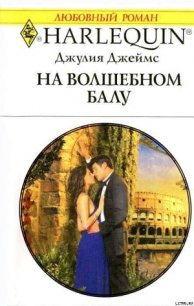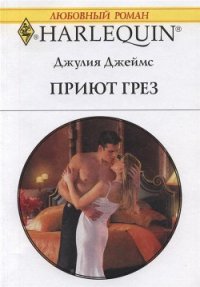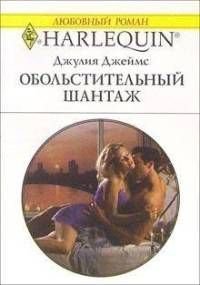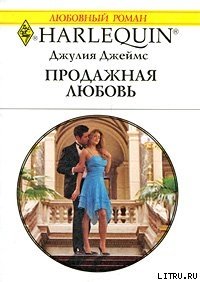Julia Ward Howe - Richards Laura E. (бесплатная регистрация книга TXT) 📗
The result of this determination was the organization of the Woman's Liberal Christian Union, which held Sunday afternoon meetings through the spring. She preached the first sermon, on March 16. "I meant," she says, "to read my London sermon, but found it not suitable. Wrote a new one as well as I could. Had a very good attendance. Was forced to play the hymn tunes myself. Am thankful that the occasion seemed to meet with acceptance."
In 1873, a number of women ministers having come to Boston to attend the May Anniversaries, she conceived the idea of bringing them together in a meeting all their own. She issued a call for a Woman Preachers' Convention, and this convention, the first held in any country, met on May 29, 1873. She was elected president, the Reverends Mary H. Graves and Olympia Brown vice-presidents, Mrs. Bruce secretary. The Journal describes this meeting as "most harmonious and happy."
In 1893, speaking of this time, she said:—
"I find that it is just twenty years, last spring, since I made the first effort to gather in one body the women who intended to devote themselves to the ministry.
"The new liberties of utterance which the discussion of woman suffrage had brought us seemed at this time not only to invite, but to urge upon us a participation in the advocacy of the most vital interests both of the individual and of the community. With some of us, this advocacy naturally took the form of preaching. Pulpits were offered us on all sides, and the charm of novelty lent itself to such merit and power as Nature had vouchsafed us. I am so much of a natural church-woman, I might say an ecclesiast, that I at once began to dream of a church of true womanhood. I felt how much the masculine administration of religious doctrine had overridden us women, and I felt how partial and one-sided a view of these matters had been inculcated by men, and handed down by man-revering mothers. Now, I thought, we have got hold of what is really wanting in the Church universal. We need to have the womanly side of religion represented. Without this representation, we shall not have the fulness of human thought for the things that most deeply concern it. As a first step, I undertook to hold religious services on Sunday afternoons, and to secure for them the assistance of as many woman preachers as I could hear of. I had in this undertaking the assistance of my valued friend, Reverend Mary H. Graves."
The society thus formed was first called "The Woman's Church," later, "The Woman's Ministerial Conference." A second meeting was held, June 1, 1874, but it was not till 1892 that this Conference was finally organized and established, to her great satisfaction. She was elected its president, and held the office till death.
The secretary, Reverend Ada C. Bowles, says of this Conference: "As its main object was to promote a sense of fellowship, rather than to expect associated labor, owing to the scattered membership, meetings were not always regularly held, or possible. But it has held together because Mrs. Howe loved it, and had a secretary as loyal to her as she was to all the women ministers."
She herself has said: "I was impressed with the importance of religious life, and believed in the power of association. I believed that women ministers would be less sectarian than men; and I thought that if those of different denominations could meet occasionally and compare notes, it would be of value."
After the formal conference, she welcomed the members at her own house, talked with them, and heard of their doings. Her eyes kindled as she heard of the Wayside Chapel (of Malden, Massachusetts) built by its pastor, Mrs. E. M. Bruce, who was also its trustee, janitor, choir, and preacher; heard how for thirteen years this lady had rung the bell every evening for vesper service, and had never lacked a congregation: or of the other woman who was asked "very diffidently" if she would conduct the funeral services of an honest and upright man who had died of drink, owing to an inherited tendency.
"They had expected to have it in the undertaker's rooms," said the Reverend Florence Buck, of Wisconsin, "but we had it in my own church. It was packed with people of all sorts, who had been interested in him; and the Bartenders' Union were there in a body.... It was an opportunity that I would not have given up to preach to the President and Senate of the United States. Next day ... they said, 'We expected she'd wallop us to hell; but she talked to us like a mother!'"
Then she turned to the president, and said, "The woman minister is often lonely. I want to thank Mrs. Howe, who welcomed me at the beginning of my ministry. Her hand-clasp has stayed with me ever since."
Our mother was never ordained: it is doubtful whether she ever contemplated such a step; but she felt herself consecrated to the work; wherever she was asked to preach, she went as if on wings, feeling this call more sacred than any other. She preached in all parts of the country, from Maine to California, from Minnesota to Louisiana; but the pulpit in which she felt most truly at home was that of the Church of the Disciples. Mr. Clarke had first welcomed her there: his successor, Charles Gordon Ames, became in turn her valued friend and pastor.
The congregation were all her friends. On Sundays they gathered round her after service, with greetings and kind words. She was ready enough to respond. "Congregationing," as she called this little function, was her delight; after listening devoutly to the sermon, there was always a reaction to her gayest mood. Her spirit came to church with folded hands of prayer, but departed on dancing feet. Sometimes she reproached herself with over-friskiness; but mostly she was too wise for this, and let the sun shine when and where it would.
She preached many times in the Church of the Disciples. The white-clad figure, the clasped hands, the upturned face shining with the inner light, will be remembered by some who read these pages.
END OF VOLUME I
JULIA WARD HOWE
1819-1910
VOLUME II
CONTENTS VOLUME II
I. EUROPE REVISITED. 1877 3 II. A ROMAN WINTER. 1878-1879 28 III. NEWPORT. 1879-1882 46 IV. 241 BEACON STREET: THE NEW ORLEANS EXPOSITION. 1882-1885 80 V. MORE CHANGES. 1886-1888 115 VI. SEVENTY YEARS YOUNG. 1889-1890 143 VII. A SUMMER ABROAD. 1892-1893 164 VIII. "DIVERS GOOD CAUSES." 1890-1896 186 IX. IN THE HOUSE OF LABOR. 1896-1897 214 X. THE LAST ROMAN WINTER. 1897-1898 237 XI. EIGHTY YEARS. 1899-1900 258 XII. STEPPING WESTWARD. 1901-1902 282 XIII. LOOKING TOWARD SUNSET. 1903-1905 308 XIV. "THE SUNDOWN SPLENDID AND SERENE." 1906-1907 342 XV. "MINE EYES HAVE SEEN THE GLORY OF THE COMING OF THE LORD." 1808-1910 368
JULIA WARD HOWE
CHAPTER I
EUROPE REVISITED
1877; aet. 58
A MOMENT'S MEDITATION IN COLOGNE CATHEDRAL
Enter Life's high cathedral
With reverential heart,
Its lofty oppositions
Matched with divinest art.




